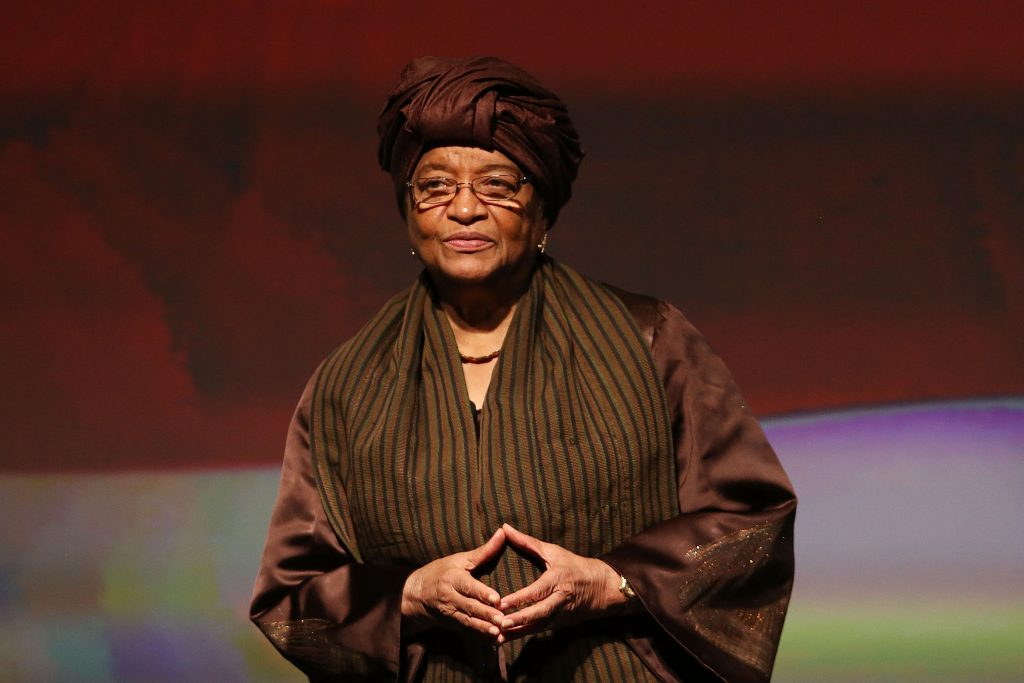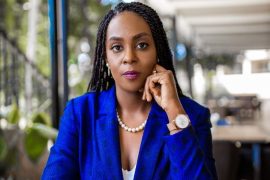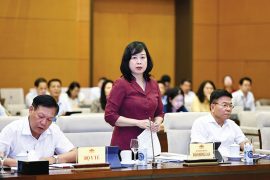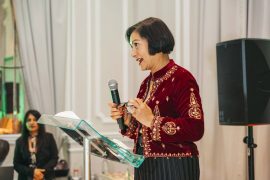By Alkali Amana
In 2006, Ellen Johnson Sirleaf became the 24th President of Liberia, ushering in an era in Africa that offered hope to women and the possibilities open to them towards politics and leadership in Africa. As President of Liberia, Sirleaf became the first woman to be elected as the head of state of an African country, serving in that capacity between 2006 – 2018 for two full terms, and helping to steer her country in the right direction. She is perhaps the most popular Liberian woman in modern history and her contributions over the course of her years in service did not just remain within the confines of her nation’s territory, spreading over across the globe with the honour of receiving the 2011 Nobel Peace Prize as evidence of her efforts towards the social and economic empowerment of women world over.
Her biography reveals that Sirleaf was born on October 29, 1938, in Monrovia, Liberia, to Jahmale Carney Johnson with her birth name noted as Ellen Eugenia Johnson. Her education cuts across a number of decent and recognized institutions covering the Madison Business College, the University of Colorado Boulder and Harvard University. As a family woman, Sirleaf is a mother to four children, having been married in 1956 and becoming divorced in 1961.
In a career that has seen active participation in politics and governance, Ellen Johnson Sirleaf rode on two different platforms, associated with the Liberian Action Party (1985 – 1996) and the Unity Party (1997 – 2018). Johnson’s career as a leader exhibiting active participation in governance spans decades and builds from the time when, after studying in the United States, she returned to Liberia to take up an appointment in President’s William Tolbert’s administration, serving as the Deputy Minister of Finance between 1971 and 1974. Johnson came to the national limelight when she chastised corporations in Liberia for transferring their gains outside the country, which she believed hindered the progress and development of the country.
Defiant, Ellen resigned from her position at the Ministry of Finance after falling out with senior officials in President Tolbert’s administration, featuring minimally in the public affairs of the country until the 1980 coup which forced her into exile. Remaining ever industrious and effective, during her time in exile, Ellen worked extensively in the financial sector. She worked at the World Bank office in Washington D.C for a number of years, then moved to East Africa where she took up the position of Vice President at the African Regional Office, Citibank. She also worked briefly with Equator Bank, a subsidiary of the British Multinational Investment Bank HSBC. Then, she had a spell in the United Nations, working as the Director of the United Nations Development Program’s Regional Bureau for Africa in 1992. While in exile, Ellen’s voice was not suppressed as she continuously criticized the government of Samuel Doe, his military regime and its activities.
Sirleaf’s real foray into the world of politics was in 1985 when she was nominated as the Vice-Presidential candidate for the Liberian Action Party, and in an election which is usually referred to as one filled with irregularities, her party lost to Samuel Doe and the National Democratic Party which he represented. Subsequently, Sirleaf was placed under house arrest by Samuel Doe, alongside other opposition leaders, as he feared their influence in the country. However, with mounting international pressure at the time, she was released. She then contested for a seat in the Senate to represent Monserrado County, which she won but declined to take up in protest to the brutalities of the government of Samuel Doe.
Her journey towards the seat of the Presidency began in 1997 when she contested under the platform of the Unity Party, obtaining up to 25% of the ballot at the polls but losing to Charles Taylor, soon after which the country plunged into a second civil war, forcing Sirleaf into a second exile, this time in Ivory Coast. She did not still relent in showing her capability as a leader as she ensured to put in her best to bringing an end to the civil war in her beloved country, thereby advocating for and fostering peace. The immense efforts she put in restoring and stabilizing the country earned her an appointment as the Chairperson of the Governance Reform Commission under which she continued to advocate for reconciliation in the country after the end of the bitter civil war in 2003.
With relative peace and a measure of stability restored in the country in 2005, Liberians took to the polls to choose an elected leader who would serve their interests, and Sirleaf contested under the platform of the Unity Party once again. In a second election, held after the first could not produce a majority winner, Sirleaf emerged as the winner, defeating George Weah – the current President of Liberia. Her inauguration as President on January 16, 2006, was attended by several dignitaries and leaders all over the world including the former U.S Secretary of State, Condoleezza Rice. Sirleaf set to work in her first term in office and she rolled out impactful programs with which to direct her country, boost its image and engender growth. These include:
- The implementation of a free and compulsory elementary school education beginning 2007.
- Passing the Freedom of Information Bill (FOI) in October 2010, thereby making Liberia the first West African country to sign such law into effect.
- Securing debt reliefs from the United States of America and Germany while also helping Liberia to pay 60% of its debt obligation to the International Monetary Fund (IMF).
Sirleaf was re-elected as a show of faith from the people of Liberia in her and the administration she led in 2011 to continue with her government. In the same year, she won the Nobel Peace Prize because of her unrelenting commitment to the advancement of women’s rights in Liberia and beyond, alongside Leymah Gbowee also of Liberia and Tawakkol Karman of Yemen. By winning the Nobel Peace Prize, Sirleaf joined a select group of African leaders who have won the prize; individuals such as Nelson Mandela (1993), Muhammad Anwar el Sadat (1978) and Abiy Ahmed (2019). She is also the first African Female Head of State to receive the award.
Over the course of her time in governance, Sirleaf worked well to stabilize the economy of Liberia with policies which led to lots of achievements for the country. She made it a priority during her time to keep the nation’s annual borrowing to 3% of the GDP. In her time in office, she expended efforts in promoting transparency and accountability, encouraging the flow of information with the effect of signing the Freedom of Information bill to support such notion, for which she won the African Editor’s Union Award as the Friend of the Media in Africa Award. To boost the economy of her country, Sirleaf was also able to attract tens of millions of dollars in foreign direct investments into the Liberian economy.
Sirleaf was a strong advocate for the reconciliation and sustenance of peace in Liberia carefully implementing policies aimed at national reconciliation and unity as she sought to heal the nation of a bitter past. She also promoted messages and acts towards reconciliation, leading the way by inviting certain members of the opposition into her cabinet with the likes of Joseph Korto, Nathaniel Barnes and Jeremiah Sulunteh featuring in prominent positions and relevant ministries. Always gender positive, Sirleaf included a number of women in her cabinet with top positions in finance, gender and development, youth and sports, and commerce and industry as ministries all filled by women. She ensured that women played important roles in the affairs of governing Liberia.
Sirleaf’s government, after two full terms, was the first since 1944 to hand over power peacefully in Liberia and she has since after handing over gone on to be part of a group of distinguished and remarkable former world leaders, known as The Elders, advocating for the promotion of justice and peace. Other notable members of the group include Ban Ki-Moon, Lakhdar Ibrahim, Gro Harlem Brundtland and other renowned world leaders. In a remark concerning her new role with the group, she mentioned that:
“I look forward to working with The Elders to inspire people everywhere, particularly women and girls, to reach for their true potential, break through barriers and pursue their dreams”
Sirleaf’s achievement in governance is well remarkable and excellent as among the several international awards she has received in leadership and women’s rights activism, the following are included:
- The Roosevelt Institute Freedom of Speech Award (1988)
- The Ralph Buche International Leadership Award
- The Golden Plate Award from the American Academy of Achievement (2006)
- Indira Gandhi Prize for Peace, Disarmament and Development (2012)
- The Ibrahim Prize for Achievement in African Leadership (2017); among other notable awards.
Sirleaf’s achievement in governance shows that in their own right African women are powerhouses, and as the opportunities present themselves, they always prove the enormous potential and pinpoint capacity to lead effectively which they possess. She nurtured and ensured the growth and development of Liberia and she is quintessentially a primary example which future female African leaders should learn from and aspire to.





Comments are closed.